|
Ah, summer. The sun is shining. The beach is calling. There’s much more time for leisure (which is so important! Read Pieper if you need convincing.). For me, more leisure means more time to read and write and consequently, more time to explore the beauty of our faith. Here’s what I’m reading this summer:
2. Four Quartets by T.S. Eliot Speaking of works I will revisit for the rest of my life, I read Four Quartets multiple times a year, including every summer. I mentioned this genius work in a previous blog, and must bring it up again. This four-part poem from Eliot isn’t the lightest read, but there are plenty of commentaries out there for guidance. I recommend Dove Descending: A Journey into T.S. Eliot’s Four Quartets. Written after his conversion, Four Quartets can be read as a response to Eliot’s earlier, more famous and more despondent poem, The Wasteland. Whereas The Wasteland wonders whether a life of harmony and wholeness is possible in the modern world, The Four Quartets presents God’s plan for salvation history as not only possible, but ideal. And let me tell you, Eliot’s incredible verse is a spiritual game-changer. 3. Spiritual Writings by Flannery O’Connor, edited by Robert Ellsberg Flannery O’Connor never wrote formal ‘spiritual writings’; rather, this is a collection of her letters and other works that touch on spiritual topics. Her writing style is sharp and punchy and will have you on the edge of your seat. The collection includes one of Flannery’s more famous letters wherein she recounts her argument with a writer about the True Presence of Christ in the Eucharist. Flannery says to the writer who has just asserted that the Eucharist is mere symbol, “Well, if it's a symbol, to hell with it.” If you like literature of the American South, snappy comebacks, and/or want to join the Catholic hipster scene, Flan is your girl. 4. 40 Years with a Saint: Blessed Alvaro del Portillo on Saint Josemariá Escrivá by Cesare Cavalleri Saint Josemariá is a twentieth century saint who founded Opus Dei, a personal prelature in the Catholic Church that focuses on finding and serving God through everyday life. Opus Dei runs the Catholic Information Center in Washington D.C., where many young professionals like myself attend talks and social gatherings. This book is the thoughts of one saint on another saint. That’s pretty awesome. There are also many awesome YouTube videos with footage of St. Josemariá which I encourage you to watch; it’s wild that we live in an age where we have footage of saints in action! 5. Pier Giorgio Frassati: A Hero for Our Times by Cristina Siccardi Modern Catholic lore is full of epic stories about Blessed Pier Giorgio Frassati. One of my favorites is that he used to go to the local pool hall and hustle the other players. When he won, he didn’t take his opponents’ money, but instead had them spend an hour with the Blessed Sacrament. I picked up this book to verify these stories and to learn more about the man who proclaimed, "Verso l ‘Alto!" (“To the heights!”) It’s not disappointing. 6. Meeting Jesus Christ: Meditations on the Word by Msgr. J Brian Bransfield As Catholics, we tend to get a bad reputation for our lack of engagement with Scripture (even though every Sunday Mass is flooded with passages and references). This book helps us dive a bit deeper both familiar and more obscure Gospel passages. If you want to engage more with Scripture this summer, this book is a great place to start. 7. Laurus by Eugene Vodolazkin Everyone loves a good Russian novel and there are many (think Anna Karenina, War and Peace, Crime and Punishment, The Brothers Karamazov etc.). Laurus is a contemporary Russian novel about holiness. Laurus loses the love of his life when she dies giving birth, and the rest of the story is about how he comes to terms with his suffering and ultimately God. The book is extraordinary and the translation is superb. It’s also a great work of historical fiction, illustrating life in Russian during the Middle Ages. Comment below with what you are reading this summer! And don’t forget to check out the many Catholic Apostolate Center eBooks by clicking here!
0 Comments
In my work at the Catholic Apostolate Center, and as a self-identified millennial, I am frequently asked: "How can we bring young people back to the Church?" It's a question I get asked a lot by people who are my parents’ age and older, mainly because they see their children, grandchildren, or nieces and nephews ‘willingly’ leaving the Church. Fortunately, our Church across the globe is also asking this very question during its October 2018 synod on Young People, the Faith, and Vocational Discernment. In preparation for the synod, the Vatican recently released the Instrumuntum Laboris (Latin for "working instrument") for the bishops of the world to review, discuss, and offer insights to Pope Francis. The document talks about the challenges that face young people, classified as those aged 16-39, in the Church and world today—from being an individual in a global society, to finding meaning in life, to living in an increasingly materialistic world, etc. —and then discusses possible solutions to these problems. The document suggests that solutions for individuals vary, but that all begin with discernment through accompaniment. When we speak of accompaniment, we might think of one person who helps another work through some difficulty by offering insight or expertise on how to overcome it – kind of like a coach. Instrumuntum Laboris, however, emphasizes that the accompaniment is not just a simple form of coaching, but rather: "...true accompaniment will strive to present vocation not as a pre-determined fate, a task to be carried out, a ready-made script, to be accepted by discovering how to implement it effectively. God takes seriously the freedom He has given to human beings, and responding to his call is a commitment that requires work, imagination, audacity and willingness to make progress also by trial and error" (Instrumentum Laboris, 121). It is through accompaniment that young people (and by extension all people) can understand the power of God in their lives because they see God working through that other person. This mentor helps the young person to see how God calls each and every one of us to be a messenger for the Word of God. The mentor also helps the young person to discover the best way to use his own talents and gifts for the Mission of the Church. The hope is that through this pairing, the spiritual growth of the individual will lead to the spiritual growth of the universal Church. Now the next questions to ask are: "Who is a mentor? What does a mentor look like?" Our Bishops and Magisterium have wisely begun to ask this question as well and have devoted an entire section of Instrumentum Laboris to mentorship and the ideal mentor: "[A mentor is] a faithful Christian who engages with the Church and the world; someone who constantly seeks holiness; is a confidant without judgement; actively listens to the needs of young people and responds in kind; is deeply loving and self-aware; acknowledges their limits and knows the joys and sorrows of the spiritual journey ... mentors should not lead young people as passive followers, but walk alongside them, allowing them to be active participants in the journey" (132). From my experiences with my mentors and as a mentor myself, as well as the experiences of friends and co-workers, I understand that active participation is the key. Unlike a coach who watches his players from the sidelines, a mentor is someone who walks with his mentee on the journey to holiness, allowing himself to grow in holiness as well. Spiritual accompaniment, as the document states at different points, is not easy—in fact it is quite difficult. It requires a deep love of Church, confidence, humility, self-awareness, and commitment. It takes time and dedication, like all strong relationships do. It requires an understanding that our faith is not passive, but rather a calling "to go and make disciples of all nations.” We are all called—priests, religious, and lay—to be mentors to those of all ages, demographics, and steps in their faith journey. Let us pray that God reveals to us those whom we are called to mentor and that we have the courage and strength to walk alongside them in our shared pursuit of holiness. Question for Reflection: What aspects of myself are well suited to mentorship? How can I continue to develop those traits or skills?
Editor's note: In honor of the Solemnity of Saints Peter and Paul, a new blogger for the Catholic Apostolate Center writes about the nature of Christian brotherhood and friendship. Check out our post from last year on Peter and Paul for a little background on these great friends and evangelists.
To my fellow Christian brothers, Nothing worth doing in life is easy, and the Christian ideal is certainly no exception. As the profound early 20th century apologist G.K. Chesterton said in his book What’s Wrong with the World, “The Christian ideal has not been tried and found wanting. It has been found difficult; and left untried.” Those who recognize the Cross are called, now more than ever, to take it up. But do not try to bear the Cross alone: find other men who have accepted the weight of the Cross and have allowed God to write it on their hearts. Bear your burdens together. When you bear the Cross with your brother, you begin to form a real friendship with him – one based in vulnerability. We don’t often bring up vulnerability when talking about manliness, but it is one of the most vital qualities to have in the effort towards holiness. When Christ became man, this was the ultimate act of vulnerability. It did not stop there, though. Christ exemplified perfect holiness through His ultimate sacrifice on the Cross. By getting to know the true nature of your brother, you enter into a state of vulnerability with him where you can then challenge him to make strides towards holiness. When I asked Brother Barnabas, a Benedictine monk at Saint Vincent College, to weigh in on the topic of manliness and male Christian friendship, he recalled a time when he lived in a house with some close friends. “There certainly was a time for fellowship, especially when we had visitors,” said Brother Barnabas, “but when it was just us men around the table, we used to say, ‘alright guys, armor off.’ That’s when we would truly expose our hearts to each other and allow the Holy Spirit to strengthen us.” The relationship Barnabas talks about is the sort of relationship that binds men together and transcends spending time with your “bros.” It’s the type of relationship that doesn’t necessarily seem intuitive for men. Our culture usually portrays women as the ones who are willing to be honest and open with one another. Men are supposed to be stoic and reserved – they’re supposed to bear their sufferings quietly. Yet, we need to have the courage to reveal our true selves with absolute honesty to other men. When needed, we must have the courage to make sacrifices for our brothers and allow them to make sacrifices for us too. The burden of the Cross becomes lighter when you have a brother bearing it beside you. In the daily effort of conversion to the will of God, having a true friend can sometimes make all the difference. The Christian ideal is not easy to follow. We as men must come together, leave the armor at the door, and allow the Lord to work through our cooperation in becoming holy together. As the Lord leads us to holiness, let us ask him in the name of the Father, and of the Son, and of the Holy Spirit to give us brothers for the journey. Amen. Question for Reflection: Do you have friends with whom you can be vulnerable? In what ways can you help your friends bear their crosses? 6/9/2018 An Interview with Fr. General Jacob Nampudakam SAC on the 40th Anniversary of his ConsecrationRead NowFr. Jacob Nampudakam SAC is the Rector General of the Society of the Catholic Apostolate. He was elected in October 2010 and is the first non-European Rector General. This interviewed was conducted by Catholic Apostolate Center Program Associate Julianne Calzonetti in Rome, Italy.
1. Matthew 4:1-3a: Jesus spent 40 days in the dessert: What have been some of your greatest trials in 40 years? Two main trials: First, I am always in favour of life. Following Deuteronomy 30, 19-20, I had to make a choice between blessing or curse, life or death. God challenges us to choose life. In life we find hope; the ability to live in wonder, nurture in love, and not despair. Hence when members show a spirit of defeatism and negativity- without making efforts to create life- it is challenging. Nothing is achieved by being chronically negative. “Rather, the one who loves Christ is full of joy and radiates joy,” as Pope Francis reminds us. Second, when members become instruments of disunity rather than unity; allowing themselves to be guided by worldliness instead of the Spirit. This is the antithesis of Jesus Christ, who tells us that His Kingdom is not of this world. Following anything other than the Spirit will lead to confusion and destruction; a problem which then takes root in the afflicted person’s heart. Thus, internal problems become external situations, which are very difficult to handle. 2. Joshua 5:6 The Israelites walked 40 years in the desert: What has been your greatest moment of trusting the Lord? “Abandon yourself to God,” St. Vincent tells us, “with perfect confidence and do not fear.” In breathing these words, we are graced with the bravery God willingly gives to go forth and proclaim the Gospel to all creation. We can also use such words to explain two of our missions, Peru and Vietnam. If we lived in the world, we would say such ambitions were impossible, as they were taken up by entities with very few members. Yet instead they are flourishing; for in our steadfast courage and faith, the Lord blessed us in a hundredfold. The moral of the story is this: trust the Gospel. Take no purse, no haversack. He is with you. Another element of surprise was my election as Rector General. It’s not easy to break the frontiers and boundaries set by International Congregations, but when the fresh air of the Spirit blows through the windows, thy will be done. 3. Jesus remained on earth 40 days after his Resurrection: What is your hope and mission, father, for the remainder of your term as Rector General, as well as the remainder of your time as Jesus' anointed one on his earthly pilgrimage? First goal: Make our holy founder known and loved by as many as possible; to offer his charism of the Union of the Catholic Apostolate in service of the Church’s mission. Second goal: Give the compass to God, listen to the cries of His people, and “be led forth with peace” (Isaiah 55:12) to the peripheries. May we be the soul that God brings to their feet, so that they may have the life in abundance He has promised. In all my journeys, what my eyes have seen cannot leave me unaffected. But in each, the open wound of my heart remains the same: for the innocent children who are deprived of love, laughter, family, medicine, education… human dignities that no person on this earth should be denied. We all have equal rights for the blessings given to us by the Creator. To live in luxury disregarding the poor around us- like the parable of the rich man and Lazarus- would be the greatest sin of a Christian. We are all poor before God. 4. 40 is seen as a generation in the Bible. What has changed in the Society and Missions? What has been made better/worse? Everything changes. We try to discern and respond to the signs of the times. Yes, the Society has grown. We have reached out to as many as 56 countries around the world. There are about 2400 members in the Society, and then, of course, the entire Pallottine Family. The scenario in the Church and all the religious Congregations is changing; and it’s moving south. Though this makes no difference; I believe it matters little where we are growing or diminishing in any part of the world. The Church is one body of Christ. Through the consecration we make, we become members of the Society. As so often said by me on visitations, we may be Italians, Germans, Polish, Brazilians, Indians etc., but we are all Pallottines, and one family. I do not believe in lamenting over the decline in one part of the world or rejoicing too much about the growth elsewhere. Such things happened in the past and continue to happen today. Tomorrow has not yet come. The Spirit moves where it wills! Success or failure – let history judge us. 5. As this generation ends, God makes another anew, just as the papacy of Francis is evermore on target with the teachings of Pallotti in Gaudete. How will you lead us in following his papal mission? The greatness of any Christian must be measured by his or her fidelity to the life of Jesus as we encounter him in the Gospel. For me, Pope Francis is someone who lives the Gospel in its radicality. The will of God is our sanctification. There are 3 similarities between our holy founder and Francis: 1. The life of Jesus as the fundamental rule of life and apostolate; 2. A poor Church for the poor; 3. Go forth to the peripheries of human life. These three steps are only possible when the first is achieved: Encounter the person of Jesus in the Gospel on a daily basis. 6. India: You are the first non-European Rector General. What have been the changes over 40 years you have seen in your country? While India as a country is slowly coming of age, what strikes me is the tremendous contribution that the minority Church- 2% of the Catholic population- is making to the Universal Church. In our Society- and the Pallottine Family as a whole- the growth in India is tremendous. No doubt, we are not talking about a perfect situation in all areas, just as in any other part of the world. The unique contributions of the Indian Pallottines are most fruitful where we are able to be faithful to our rich, spiritual traditions and work zealously to be instruments of peace and communal harmony. The 58 schools run by the Pallottines, with thousands of teachers and students from all religions, could serve as the best instrument to promote unity and peace in a world divided by religious disharmony. The One Almighty and Loving God is the Creator of every human person created in His own image and likeness. The ability to respect and love every human being, regardless of his nationality, culture or creed, and be able to see the face of God on each person, will make us universal human beings. The future of the Society, the Church, and the world itself will depend much on this ability to go to the most profound ontological and existential level and be universal persons. Building walls is a sign of innate fear and insecurity. Having grown up in a multi-religious context in India, where we played and grew up with Hindu, Muslim and Sikh youngsters, it does not frighten me to deal with one of a different faith. Experiences mould us. Let’s open up as a Society and work for the common good. But firstly, let’s open up our hearts. That is exactly the work of the Holy Spirit; who opened up the newly founded Church on the day of Pentecost. 6/1/2018 Remarks on Accepting the Gaudium et Spes Award from the National Association for Lay MinistryRead NowToday, the Catholic Apostolate Center and our Director, Fr. Frank Donio, S.A.C., were honored with the Gaudium et Spes Award from the National Association for Lay Ministry (NALM) at an awards luncheon jointly hosted by NALM and National Conference of Catechetical Leadership (NCCL).
The award recognizes an outstanding individual or organization for promoting understanding of the Church in the world according to the vision of Vatican II. It is the highest honor that the association can bestow. Although the award has been given eighteen times since its inception in 1989, NALM has only recognized an individual and an organization together once before. Fr. Frank and the Center were chosen for this award because of the extensive collaboration they engage in through his ministry as a Pallottine priest and the work of the Center. The Center was recognized for its ability to provide extensive resources to individuals and ministries so that many can revive faith, rekindle charity, and form apostles. National Association for Lay Ministry Gaudium et Spes Award Catholic Apostolate Center and Fr. Frank Donio, S.A.C. Chicago, IL June 1, 2018 On behalf of the entire Catholic Apostolate Center team working on three continents, I wish to thank Deacon Keith Davis, his predecessor as Board Chair, Mark Erdosy, the National Association for Lay Ministry Board of Directors and the members of NALM for this Gaudium et Spes Award. In recognizing the Center and me, you are also recognizing the charism of St. Vincent Pallotti. He believed that all are called to be apostles and created in Rome in 1835 a co-responsible and collaborative association of lay people, religious, and clergy called the Union of Catholic Apostolate; whose mission was and is to be what he called “an evangelical trumpet, perpetually calling everyone and awakening the zeal and charity of all the faithful” (OOCC I, 4-5). You are also recognizing my fellow members of the Immaculate Conception Province of the Society of the Catholic Apostolate, the Pallottine Fathers and Brothers, who as a Province have an almost seventy-year commitment to lay apostolate and after Vatican II to lay ministry as well, including founding the Catholic Apostolate Center in 2011 as an official ministry of the Province. Finally, and very importantly, you are recognizing the team of mostly young adults who comprise the staff of the Catholic Apostolate Center. The Center, while not a young adult organization, is an organization that is open and welcoming to young adults. We provide accompaniment and mentorship and show how that can be done not only with peers, but with all in Church leadership. We welcome and utilize the creativity of young adults and provide leadership opportunities. All of this is also done in collaboration with many Church entities such as the USCCB, various national Catholic organizations, including all the sponsoring groups of this conference, dioceses, movements, and associations as well long-serving professionals in ministry. We use collaborative and technological means to accomplish our mission to provide formative evangelization resources for active Catholics to help them become apostles or missionary disciples sent to assist others in encountering Jesus Christ and the Church. We develop greater collaboration and co-responsibility among Catholic leaders. We do this through living our vision that comes to us from St. Vincent Pallotti – reviving faith, rekindling charity, and forming apostles. Our hope is that our model of a Catholic organization, ever open to the initiative of the Holy Spirit, can assist others in moving beyond “We have always done it this way” (Evangelii Gaudium, 33), while at the same time keeping continuity with the tradition and teachings of the Church. Again, many thanks to the National Association for Lay Ministry for this recognition. We promise to deepen our efforts to assist the Church in its “duty of scrutinizing the signs of the times and of interpreting them in the light of the Gospel” (Gaudium et Spes, 4). May the Charity of Christ urge us on! Today ends a yearlong celebration of the Jubilee of the 200th Anniversary of the Ordination to the Priesthood of St. Vincent Pallotti. In celebrations in 54 countries around the world and beyond, Pallotti’s foundation, the Union of Catholic Apostolate, is offering thanks for his life of selfless ministry. Ordained on May 16, 1818 as a priest of the Diocese of Rome, Pallotti served his entire life in the city, especially through pastoral care of the poor, sick, prisoners, and dying, spiritual direction, education, and sacramental ministry, particularly the Eucharist and Penance. Through reviving faith and rekindling charity as a priest always in collaboration with others, he was inspired 17 years later to found an association of lay people, religious and clergy that would assist the Church’s missionary efforts, revive the faith of Catholics, and live universal charity. He called it the Union of Catholic Apostolate. Only after almost 20 years of priestly ministry did he form a community of priests and brothers as well as a community of sisters. Both communities were small by the time of his death in 1850, but today are throughout the world. Fr. Jacob Nampudakam, S.A.C., the Rector General of the Society of the Catholic Apostolate (Pallottine Fathers and Brothers) in his book, The Spirit of the Priesthood according to St. Vincent Pallotti, summarizes well the way in which Pallotti went about his priestly ministry: “Vincent Pallotti from the very beginning of his priestly life, committed himself to live out all of the implications of the ministerial priesthood and revive its evangelical spirit. He interiorized the priesthood as a following of Jesus Christ and expanded his vision and put it into practice by means of priestly activities” (9). Pallotti in and through his priestly ministry lived the life of an apostle, a follower of Christ who is sent out into the world to share the Gospel in word and deed. As apostles, we are not alone, as Pope Francis notes: “I entrust all of you to the protection of Mary Most Holy, whom St. Vincent Pallotti venerated especially as Queen of Apostles. Her good example of apostolic zeal and perfect charity, invites us to pray without ceasing to invoke the gifts of the Holy Spirit upon the apostles of today, so that the Gospel of her Son can be proclaimed in every part of the world.” May the Charity of Christ urge us on! In Christ, Apostle of the Eternal Father, Fr. Frank
Giving and gaining. These two words sum up my experience interning at the Catholic Apostolate Center. Over the course of the last four months, I feel like I have helped in assisting the advancement of St. Vincent Pallotti’s mission as expressed in the 21st century through the work of the Center. In return, I have gained a significant amount of experience that I intend to use in my future endeavors as a young Catholic engaged in social media. The Center’s goals are aimed towards forming Catholics who embrace the style of evangelization that Pope Francis has coined as “missionary discipleship,” and before him, what St. Vincent Pallotti called the “Universal Apostolate.” After several weeks of working with this team, I can safely say that I, too, have been impacted by the central message of the organization. Each week in passing, I became more confident in the idea that I am a missionary disciple.
To be more precise, I would like to address exactly how I’ve grown by participating in the Center’s mission. As a young Catholic already involved in social media evangelization, having worked on a small blog of my own creation, it was a true blessing for me to be offered the opportunity to work on a grander project in a more professional environment. I am aware of several peers of mine, both in college and high school, who work on their own amateur Catholic media projects, and I urge them to take interest in the Center’s goals and aims. Working for the Center is an opportunity that shouldn’t be passed up. The vast amount of resources offered to expand a person’s knowledge of Catholic social media is astounding. The Center is growing, meaning that there is an air of personality and friendliness to it, yet it manages to retain the utmost amount of professionalism by hosting conferences, inviting fantastic speakers on webinars, and using advanced hardware and software that impressed me on my first day. Because of this combination of expertise and community, I felt myself develop not only as a professional evangelizer, but also as a young man in faith. What have I given to the Catholic Apostolate Center? Certainly, time and dedication, though this is mostly thanks to the staff’s magnificent ability to ferment enthusiasm and foster talent. The managers I worked with were splendidly approachable and allowed me to grow at my own pace. In return, I gave as much as I could—via web design, video editing, and as a production assistant. Some days I redesigned pages of the website. Other days I was given videos to piece together using Adobe Premier Pro. Generally speaking, I feel satisfied with the level of involvement I had with the Center. It is a great entry-level internship for students who are busy; the Center is understanding and flexible for scheduling. Essentially, the warm and energetic environment of the Center helped to kindle my ambition and interest in exploring social media evangelization, and I believe that is the reason I was able to work so efficiently on tasks delegated to me. What have I gained from my experience with the Catholic Apostolate Center? I have learned a variety of skills and techniques in media production that are difficult for any young person to find without spending copious amounts of money. Walking into the office the first day, I knew I was in a professional studio. The Center is resourceful and efficient, making creative use out of all its equipment and space. Since the team is still expanding, it felt great to know I was contributing to the growth of an organization. These are experiences that not only apply to Catholics interested in evangelization, but also to young men and women interested in small businesses, marketing, and communications. I am happy to have been a part of such an ambitious project, and I am looking forward to seeing how the Center finds ways to continue thriving. Working at the Catholic Apostolate Center has given me greater insight into the world of professional Catholic media, while also empowering my faith. At the same time, I would recommend this internship opportunity to anyone, regardless of faith, who is interested in the mechanics of production. This really is a once-in-a-lifetime experience that I cannot praise enough. Thank you to the staff for giving me the chance to serve alongside you all on our collective quest to become missionary disciples. William Deatherage is a student of Politics and Theology at The Catholic University of America. He interned with the Catholic Apostolate Center from January 2018 to May 2018. My name is Jackie Markisz and I was very fortunate to have interned at the Catholic Apostolate Center during my spring semester of freshman year. I am a student at The Catholic University of America located in Washington, D.C. , and I am pursuing a degree in Marketing with a minor in Media Studies.
My time interning at the Catholic Apostolate Center has been an enriching experience. I learned new editing techniques and how to use different applications, such as Adobe Premiere and Canva, to create flyers for the Center’s various conferences. I was very fortunate to work with Alex Cranstoun, the Center’s Production Coordinator, every week. He allowed me to have creative freedom whenever I edited videos for the Center’s website or created flyers, and he invited me to give my own feedback on how to enhance the Center’s website and YouTube page. He also made sure every project that I worked on was something that taught me a new skill. This helped to enhance my skill set as a student who wants to pursue a career in Digital Marketing and Editing. Every staff member that I worked with and met at the Catholic Apostolate Center was friendly and allowed me to have the firsthand experience to learn skills that I not only wanted to learn, but that also expanded my video editing knowledge. During my time interning at the Catholic Apostolate Center, I helped edit various videos for the Center’s website, created flyers for their various conferences, and helped edit the Center’s YouTube page and website. I highly recommend interning at the Catholic Apostolate Center. Not only will you be able to work with a great staff, but you will be able to explore your various interests and further your skills and your knowledge for your specific vocation. Jackie Markisz is a student at The Catholic University of America pursuing a degree in Marketing with a minor in Media Studies. Communicating in an audio format is nothing new. During and after World War I, radio transformed communication in households and across battlefields. Speeches, reporting, and entertainment also utilized this medium for many different audiences and purposes. The Catholic Church has taken advantage of developments in audio communication in order to transmit homilies, catechesis, and words of encouragement for almost a century, the long standing Vatican Radio being one example. Now in the 21st century, a new medium of audio evangelization has formed in the lexicon and zeitgeist: podcasting. A portmanteau for iPod and broadcasting, podcasts are audio files that can be downloaded and listened to. They have reinvigorated the audio sphere for the digital age, with thousands of podcasts and hundreds of hours of content being created every day. What does that mean for Catholics trying to evangelize and move people to mission? How should we as a Church approach new media and new methods of communication?
Many Catholics are trying to answer that question in a variety of ways. During the World Day of Communication in 2014, Pope Francis encouraged the Church to “boldly become citizens of the digital world.” He continued, “The Church needs to be concerned for, and present in, the world of communication, in order to dialogue with people today and to help them encounter Christ.” Over the past year, the Catholic Apostolate Center has created podcasts in an effort to evangelize and help others encounter Christ. We started by recording some of our most popular blog posts for people to listen to “on the go,” and we are now launching a new podcast initiative called “On Mission” to discuss important themes and topics for Catholics today. (Keep an eye on www.catholicapostolatecenter.org/podcasts for the forthcoming launch of this series.) How do we view podcasts as a moment of evangelization? Like any other video, writing, or audio, podcasts enable us to be prophetic witnesses to the faith in a way that’s approachable and encounters people where they are. I think that if we approach podcasts as Archbishop Fulton Sheen approached television over 50 years ago, we will be responding to Christ’s command to “go out to all the nations” and evangelize. Archbishop Sheen used a new medium of communication for the glory of God. Today, podcasts are just one tool we can use in order to more effectively spread the Gospel message. In many ways, Pope Francis is calling all people to engage in this sort of witness of the faith by utilizing the means of communication at their disposal. During the World Day of Communication in 2014, he remarked on the importance of using media to inspire moments of encounter and to increase solidarity. He said, “In a world like this, media can help us to feel closer to one another, creating a sense of the unity of the human family which can in turn inspire solidarity and serious efforts to ensure a more dignified life for all. Good communication helps us to grow closer, to know one another better, and ultimately, to grow in unity.” At the Catholic Apostolate Center, we aim to use the various means of communication at our disposal for that very purpose: to create a sense of unity within the Church and also in the world. How beautiful would it be if all members of the Body of Christ were to be this peaceful and harmonious? It is my belief that we can, as was done with radio or television, offer this sort of peaceful accompaniment to another generation of evangelizers. I would like to conclude with a prayer written by Pope Francis that was inspired by the prayer of peace attributed to St. Francis: “Lord, make us instruments of your peace. Help us to recognize the evil latent in a communication that does not build communion. Help us to remove the venom from our judgements. Help us to speak about others as our brothers and sisters. You are faithful and trustworthy; may our words be seeds of goodness for the world: where there is shouting, let us practice listening; where there is confusion, let us inspire harmony; where there is ambiguity, let us bring clarity; where there is exclusion, let us offer solidarity; where there is sensationalism, let us use sobriety; where there is superficiality, let us raise real questions; where there is prejudice, let us awaken trust; where there is hostility, let us bring respect; where there is falsehood, let us bring truth. Amen.” Questions for Reflection: What are some examples you’ve seen of using media positively in order to build communion? Can you think of others in which media or technology created isolation? How is God calling you to use the tools at your disposal in order to share the Gospel? To listen and subscribe to our latest podcasts, please click here. “But this I will call to mind; therefore I will hope: The Lord’s acts of mercy are not exhausted, his compassion is not spent; They are renewed each morning—great is your faithfulness!”
-Lamentations 3:21-24 Reflecting on the theme for this year’s Mid-Atlantic Congress—"Hope”—I feel as though the idea of hope seems a radical one to even consider today. Every morning, we’re confronted with more bad news: refugees, war, political espionage, starvation, violent crime, and even mass shootings in our own communities. It’s enough to make you throw up your hands and cry out, “Just make it stop!” And that’s exactly why we need hope. With the current state of the world, focusing on the theme of hope is one of the most important things we can do as a community of faith. We often hear that things are in crisis: the family, the Church, our nation, our whole world. But what we encountered at MAC this year looked nothing like crisis. In fact, it looked very much like hope. In our conversations with participants, the Catholic Apostolate Center staff witnessed a fire that, in charity and love, seeks to transform the world with the good news of the Gospel. And while it’s easy to get caught up in the excitement of being surrounded by passionate and hard-working people, there are ways we can carry that hope and momentum forward into our parishes and communities. The Catholic Apostolate Center participated in four presentations this year at the Mid-Atlantic Congress. In our presentation discussing Living as Missionary Disciples, the U.S. Bishops’ guide for pastoral planning, we were able to provide basic principles of missionary discipleship and evangelization. We talked about where the Church in the United States is heading with its evangelization and pastoral planning efforts and together brainstormed practical ways to implement these ideas in our own parishes and dioceses. By collaborating with other members of the Church, and helping to form missionary disciples, our work can change the narrative of hopelessness we often see in the world. The Center also engaged in fruitful conversation about how to equip young adults to enter into the mission the Church calls us to: becoming missionary disciples, or everyday evangelizers. The session highlighted work being done in several archdiocesan and post-collegiate formation programs, such as Apostles on Mission. We also reflected on the importance of fostering a greater sense of vocational discernment among young adults—a theme on which the Church will continue to reflect in the upcoming Synod on Young People, the Faith, and Vocational Discernment. Regarding our schools, the Center had the opportunity to reflect on the complexities of the role of principals as Lay Ecclesial Ministers. Acting as part-administrator, teacher, janitor, crying shoulder, cheerleader, and lunch monitor, a principal is also a school’s connection to the local parish and diocese. They take on a complex role in today’s world and, from the discussion in our session, are eager to renew their commitment to helping form the next generation of missionary disciples. Finally, the Center unpacked the idea of collaboration from the beginning as it can apply to pastoral planning. With so many new (rather, renewed) ideas being proposed by Pope Francis and the bishops, wrapping one’s head around the various buzz words, new terminology, or different pastoral methodologies can seem overwhelming. Our conversation touched on co-responsibility, missionary discipleship, and entering into pastoral planning with a spirit of discernment and collaboration. It was encouraging to see pastoral leaders rising to the challenge of being co-responsible missionary disciples ready to share the hope of Jesus Christ. At MAC this year, we experienced hope: hope in the Lord, hope that will not disappoint, and hope that sends us forth. We saw the excitement and fire that comes from hope, which will be taken home to our parishes, schools, and dioceses to transform the world. We thank all who engaged in conversation with us at MAC and challenge you to proclaim the hope of the Gospel to the world. To listen to our presentations from this year’s Mid-Atlantic Congress, please click here. Reviving faith and rekindling charity through forming apostles is at the core of the mission of the Catholic Apostolate Center. It reflects the charism of St. Vincent Pallotti , our patron. We strive to rekindle the fire of the Holy Spirit in the hearts and minds of all the baptized, grow that fire in our communities, and spread it throughout the world. In his Lenten Message for this year, Pope Francis talks about why there is need for rekindling charity among the People of God:
"Love can also grow cold in our own communities. In the Apostolic Exhortation Evangelii Gaudium , I sought to describe the most evident signs of this lack of love: selfishness and spiritual sloth, sterile pessimism, the temptation to self-absorption, constant warring among ourselves, and the worldly mentality that makes us concerned only for appearances, and thus lessens our missionary zeal." Through our many and varied resources available on our website to our consultancy services, the Catholic Apostolate Center wants to assist you in your own formation as an apostle or missionary disciple , but also in the formation of others. At the recent Mid-Atlantic Congress for Catholic Leaders in Baltimore, which we co-sponsored, our Center team shared ways that all can be on fire with missionary zeal. I invite you to listen to the podcasts of those presentations which can be found by clicking here. The Catholic Apostolate Center unites with Pope Francis in his call to not let charity "turn cold within us." May the Charity of Christ urge us on! To read the full newsletter which this article was taken from, please click here. "Remember that the Christian life is one of action; not of speech and daydreams. Let there be few words and many deeds, and let them be done well." – St. Vincent Pallotti Blessings to all as we prepare to celebrate the feast of St. Vincent Pallotti on January 22nd! Some may ask, “Who is that?” I am glad that you asked. St. Vincent Pallotti and his charism are the reason why the Catholic Apostolate Center exists. He was a priest of the Diocese of Rome in the first half of the nineteenth century. His ministry spanned the poor to popes. It did not matter what a person was, but who the person was, an image and likeness of God, the Infinite Love. He saw all people as gifted by God with talents that were meant to be shared. On January 9, 1835, St. Vincent Pallotti was inspired to found the Union of Catholic Apostolate, a collaborative association of lay people, religious, and clergy, who were called to assist in the missionary efforts of the Church through all apostolic methods and means, “revive, maintain, and increase the faith” of Catholics, and be an “institution of universal charity”. Over time, a community of priests and brothers and communities of sisters developed as well. Members of the Union of Catholic Apostolate are now in over 50 countries around the world. The Catholic Apostolate Center, a ministry of Pallotti’s community of priests and brothers, is a 21st century expression of his charism that works to revive faith, rekindle charity, and form apostles. Looking the other way when others were in need was not possible for Pallotti and his life calls all, particularly Catholics, to be more than simply passive participants in the Faith. Instead, we are called to be apostles, sent by Jesus Christ out into the world to spread the Gospel and charitably bring healing and consolation in the midst of brokenness and suffering. The most vulnerable and in need were closest to the heart of St. Vincent Pallotti as he and his companions went into the streets of Rome to care for them day after day and night after night. On January 22, 1850, he died from a respiratory illness because he had braved the elements to continue his work after giving away his cloak to a poor elderly woman on a cold, rainy night. St. Vincent Pallotti understood well what Pope Francis teaches us today: “Jesus, the evangelizer par excellence and the Gospel in person, identifies especially with the little ones (cf. Mt 25:40). This reminds us Christians that we are called to care for the vulnerable of the earth” (Evangelii Gaudium, n. 209) We invite you to learn more about St. Vincent by downloading our Pallotti App or visiting our Pallotti Portal. May the Charity of Christ urge us on!
Two weeks ago, I was walking from my cozy warm apartment in the Northeast part of Washington, D.C. to Union Station to meet up with a friend for dinner. It was 18*F (-7*C) outside and the wind was just starting to pick up. There were forecasts of snow in the next few days. I was bundled up with a wool sweater, socks, jacket, scarf, and gloves. About ten minutes into my walk, I started to regret my decision to walk and wondered if I should’ve called a cab. As I approached Union Station, I could see the Capitol building lit up in the distance. It was there that I saw 8 people lying on the streets completely covered with layers and layers of clothing and blankets. I immediately forgot my own brief and temporary plight. It was a stark and chilling reminder of the great poverty that still exists not only in other countries, but right here in the United States in our capital city. Each January, the Church in the United States recognizes Poverty Awareness Month and takes up Pope Francis' challenge “to live in solidarity with the poor.” Last year, Pope Francis called for the observance of the very first World Day of the Poor. This call was not just for faithful Catholics, but for people of all nationalities, creeds, and socioeconomic backgrounds. As he said in his message for the first World Day of the Poor, “Love has no alibi. Whenever we set out to love as Jesus loved, we have to take the Lord as our example; especially when it comes to loving the poor.” The church and world responded with countless acts of charity and kindness to the poor. Poverty is a massive issue with far too many heartbreaking statistics for us to consider it on only one day each year. It is a concern that needs constant attention and awareness that we can cultivate on a daily basis. Poverty does not simply come in the form of homelessness, but can manifest itself in many different ways. It can be manifested in our neighbor who has to choose between buying prescriptions or groceries, or in the child who cannot focus on school because they have not eaten the proper food they need. It can be manifested in the single mother who cannot afford childcare while she works. Each of us can work towards helping to alleviate poverty. Here at The Catholic University of America, we run a large number of different programs throughout the year that highlight various forms of poverty and ways to help. Twice a year we have massive service days during which we send nearly 900 students to help local organizations that serve the poor. Every week we have twenty opportunities for students to serve the poor across seven different service sites. Some of these include going to soup kitchens or after-school centers and volunteering with the Missionaries of Charity. One of the most highly attended opportunities is a recurring homeless food run in which students take food and supplies to areas of D.C. with large homeless populations. The students do not simply pass out food, but sit and talk with the homeless. They get to know poverty on the most human level possible. They offer their resources, time, and love to those in need. These types of efforts enable us not only to give the poor material goods and the gift of our time, but also help us personally grow. Walking in solidarity with our brothers and sisters and encountering them leaves us transformed. As Pope Francis wrote in Evangelii Gaudium, “This is why I want a Church which is poor and for the poor. They have much to teach us. Not only do they share in the sensus fidei, but in their difficulties they know the suffering Christ. We need to let ourselves be evangelized by them…” Throughout the year, I encourage you to consider participating in or making your own outreach to help those in need—and to bring a friend. Let us allow ourselves to be evangelized by the poor, live in solidarity with them, and work to alleviate their suffering. As St. Vincent Pallotti, the patron of the Catholic Apostolate Center, reminds us, “Remember that the Christian life is one of action; not of speech and daydreams. Let there be few words and many deeds, and let them be done well.” Questions for Reflection: What are some concrete ways you can help alleviate poverty? Has a personal encounter with the poverty of another ever impacted your spiritual life? During college, I had a professor with a reputation for being extremely challenging. Upperclassman students would warn us as freshman: “whatever you do, don’t take him! You will work more in his class than you ever have before!” I vividly recall one chilly, December afternoon walking by this professor’s office and watching students storm out from it, visibly angry. “Not good,” I thought to myself. It would certainly be easier to continue to breeze by in my classes than to be challenged. My senior year, against all advice, I decided to enroll in this professor’s class. The warnings from the upperclassmen were correct. He was difficult and challenged me to grow in my craft like no educator before had ever challenged me. And for that, I am forever thankful. How can you grow without being challenged? I am only the professional I am today because my professor was dissatisfied with the status-quo. He knew his curriculum would be difficult, but he believed that each of his students could achieve more, even though it was uncomfortable and challenging. He wanted us to excel rather than simply get by. As I reflect on Pope Francis’ upcoming 81st birthday and give thanks to God for his ministry, I see some similarities between him and my professor. One of our Holy Father’s greatest gifts to the people of God is that he challenges us to be uncomfortable with the status-quo, with “maintenance mode.” In Evangelii Gaudium, Pope Francis exclaims: “In our day Jesus’ command to ‘go and make disciples’ echoes in the changing scenarios and ever new challenges to the Church’s mission of evangelization, and all of us are called to take part in this new missionary ‘going forth’. Each Christian and every community must discern the path that the Lord points out, but all of us are asked to obey his call to go forth from our own comfort zone in order to reach all the ‘peripheries’ in need of the light of the Gospel.” Pope Francis, much like my professor in college, presents us with a challenge because he knows that the Church’s potential is incredible, even if this shift to mission mode is not easy. Convincing our colleagues and community to move from maintenance mode to mission mode, however, can be difficult. Some parish leaders I have encountered argue that their parish has always done something in a certain way and that if they changed it half of their parishioners would leave the parish. Nevertheless, in Evangelii Gaudium, Pope Francis reminds us that: “Pastoral ministry in a missionary key seeks to abandon the complacent attitude that says: ‘We have always done it this way’” (EG, no. 33). The only way that parishes will become missionary communities that are focused on going forth to form missionary disciples is by shedding their contentedness with the status-quo and aversion to conflict at all costs. Pope Francis continues, “the word of God constantly shows us how God challenges those who believe in him ‘to go forth.’” Let us then turn to God and his Word in order to have the courage to go forth! Moving from maintenance to mission will be uncomfortable, but, as Pope Francis prophetically reminds us, is our calling as followers of Jesus Christ. Please join me and the Catholic Apostolate Center team in wishing Pope Francis a very happy and blessed 81st birthday, which he will celebrate on December 17th! For more resources on Missionary Discipleship, please click here. We have entered the season of Advent and a new liturgical year. Advent offers us an important time to watch, wait, and reflect on the coming of Jesus Christ and on our encounter with him. He is encountered in the mystery of the Incarnation, which we represent by Nativity scenes placed in our churches, chapels, and homes. We could limit ourselves to only looking at the beauty of the artistic scene and not move into deeper reflection on the fact that God, who is infinite love and mercy, sent his only begotten Son to save us.
Christ is also encountered in the Eucharist, most significantly during the celebration of the Mass. Pope Francis describes this coming of Jesus: “Mass is prayer; rather, it is prayer par excellence, the loftiest, the most sublime, and at the same time the most ‘concrete’. In fact, it is the loving encounter with God through his Word and the Body and Blood of Jesus. It is an encounter with the Lord.” (General Audience, November 15, 2017). And Christ will come again in all his glory at the end of time. We need to be prepared for this time not simply through passive waiting, but by active watching for the Lord and encountering him in our brothers and sisters who are most in need, especially the poor, the vulnerable, and the voiceless (Mt. 25:31-46). As baptized members of the Body of Christ, we are co-responsible for the mission that he left us until he comes again – for the salvation of souls – not only focusing on eternal life with God, but also on how we are collaborating with the Most Holy Trinity to build the Kingdom of God on this side of life. Pope Francis also reminds us of the connection of the Immaculate Conception to the salvific plan of God. “In the Immaculate Conception of Mary we are invited to recognize the dawn of the new world, transformed by the salvific work of the Father and of the Son and of the Holy Spirit. The dawn of the new creation brought about by divine mercy. For this reason, the Virgin Mary, never infected by sin and always full of God, is the mother of a new humanity. She is the mother of the recreated world.” (Homily for the Solemnity of the Immaculate Conception, 2015) We have not been conceived without sin, but we have been washed clean of Original Sin at Baptism (and all prior sin, if one was baptized as an adult). While we have all sinned since that time, our Baptism offers us a share in the mission of Jesus Christ as Priest, Prophet, and King. Though followers or disciples, he also sends us as apostles, or as missionary disciples, out into our challenging world to witness to him by what we say and do. That is why we are told at the end of each Mass to “Go”. We are sent on mission by Christ and the Church as joyful witnesses of God’s love and mercy. Our best example of how to be a missionary disciple of Jesus Christ is the Blessed Virgin Mary. She followed Jesus as his disciple unfailingly during her life and continues from her heavenly home as Queen of Apostles to invite us to encounter her Son, Jesus Christ, Our Savior and Lord. May the Charity of Christ urge us on! The Catholic Apostolate Center is a ministry of the Immaculate Conception Province of the Society of the Catholic Apostolate (Pallottine Fathers and Brothers). The Pallottines and the Center staff will remember you in special prayer on this Solemnity of the Immaculate Conception. |
Details
Archives
April 2024
Categories
All
|
About |
Media |
© COPYRIGHT 2024 | ALL RIGHTS RESERVED





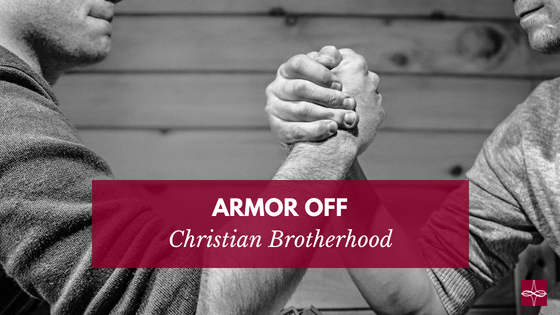

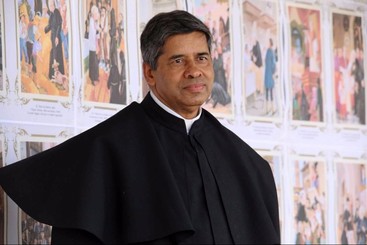
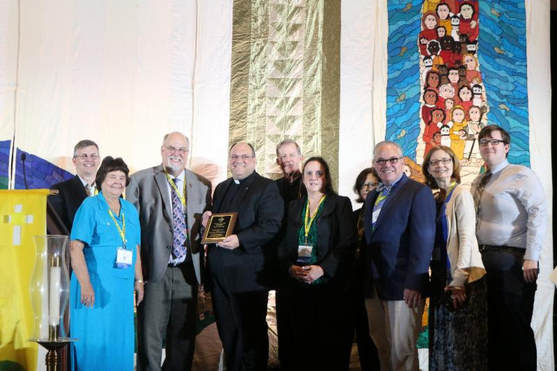
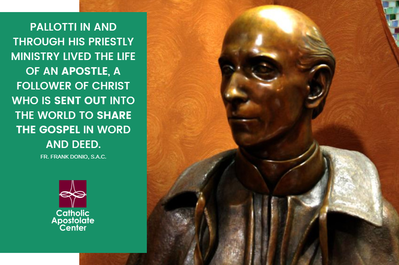
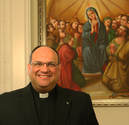
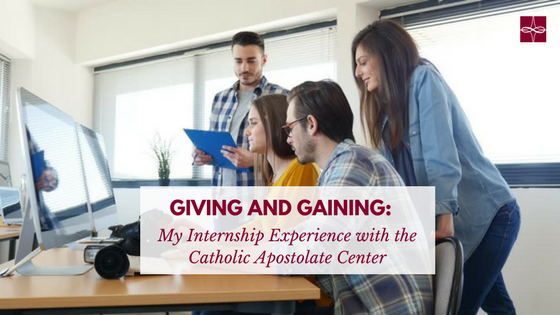





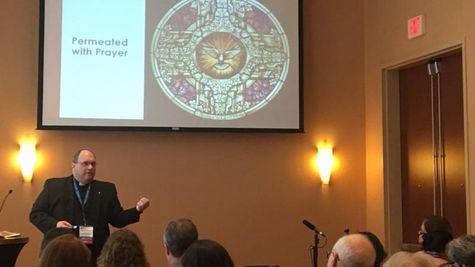
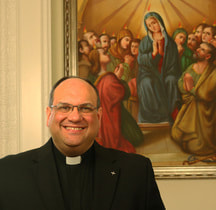
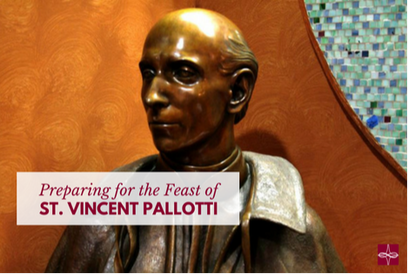


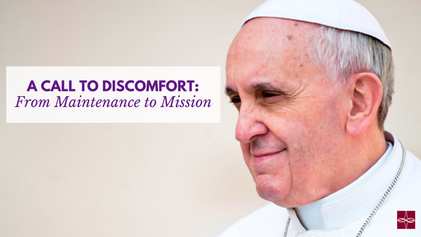

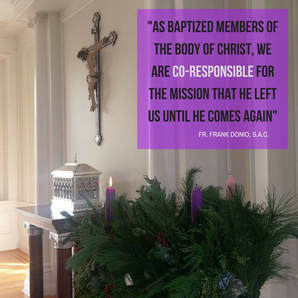
 RSS Feed
RSS Feed